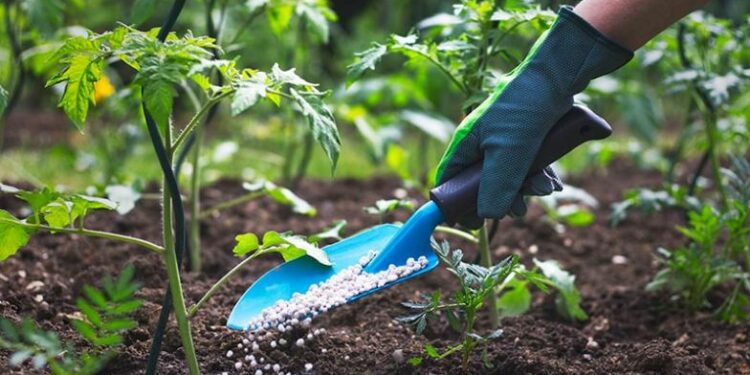Ghana and OCP Group forge alliance to drive economic diversification through $1.3bn fertilizer complex
Highlighting the crucial role of mineral exports in Ghana’s economy, the reports revealed that they constituted 48.4 percent of the country’s total merchandise export revenue in 2020. Crude oil and cocoa accounted for 20.1 percent and 16.1 percent, respectively, further underscoring the significance of diversification efforts.
- Advertisement -
In a bid to diversify its economy and reduce dependency on oil and gas resources, the Ghanaian government has joined forces with OCP Group, a prominent Moroccan company, to embark on an ambitious project that will shape the country’s agricultural landscape. The collaboration entails the completion of the front-end engineering design (FEED) for a state-of-the-art fertilizer complex in Takoradi, with an estimated investment of US$1.3 billion. This landmark project aims to leverage Ghana’s abundant natural gas reserves while boosting the agricultural sector and simultaneously reducing input costs for farmers.
During the launch event for the 2020 GHEITI Reports, which provide comprehensive insights into Ghana’s mining and oil/gas sectors, Dr. Mohammed Amin Adam, Minister of State at the Ministry of Finance, unveiled this momentous development. Dr. Adam highlighted the pivotal role that the fertilizer complex will play in enhancing fertilizer availability and bolstering the industrialization of Ghana’s agricultural sector.
Recognizing the importance of pursuing sustainable and diversified economic growth, Dr. Amin Adam emphasized the need to explore alternative sectors, particularly in light of recent declines in oil and gas production and the potential challenges associated with the ongoing energy transition. He affirmed that the fertilizer complex represents a significant stride towards achieving these long-term economic objectives while contributing to Ghana’s overall development.
The 2020 GHEITI Reports, released alongside the announcement, shed light on the remarkable progress Ghana has made in its resource governance framework in recent years. Regulatory reforms, such as the implementation of the Fiscal Responsibility Act and the Minerals Income Investment Fund Act, have been instrumental in enhancing transparency and accountability within the sector. As a testament to these efforts, Ghana’s gold mining sector witnessed a substantial surge in its Resource Governance Index score, rising from 56 out of 100 points in 2017 to an impressive 69 out of 100 points in 2020. The reports also highlighted significant improvements in revenue management, with the revenue management sub-component increasing from 37 percent in 2017 to an encouraging 54 percent in 2020, underscoring the government’s progress in effectively managing mineral and economic rents.
Turning to the oil and gas sector, the reports unveiled intriguing insights into its contributions to Ghana’s Gross Domestic Product (GDP) in 2020. Accounting for 3.7 percent of the country’s GDP, the sector faced a growth rate of -4.6 percent at constant 2013 prices. Notably, crude oil production witnessed a decline, with 66.91 million barrels produced in 2020 compared to 71.4 million barrels in 2019. Furthermore, total petroleum receipts for 2020 decreased to US$666.39 million from US$937.58 million in the previous year. Within the mining and quarrying sector, gold production experienced a downturn of 12 percent, falling from 4.577 million ounces in 2019 to 4.023 million ounces in 2020. Manganese production also recorded a significant drop of 56 percent, while bauxite production exhibited a modest growth of 4 percent.
Highlighting the crucial role of mineral exports in Ghana’s economy, the reports revealed that they constituted 48.4 percent of the country’s total merchandise export revenue in 2020. Crude oil and cocoa accounted for 20.1 percent and 16.1 percent, respectively, further underscoring the significance of diversification efforts. Mineral revenue demonstrated a promising 4.8 percent year-on-year expansion, increasing from US$6.678 billion in 2019 to US$6.998 billion in 2020.
The Multi-Stakeholder Group of the Ghana Extractive Industries Transparency Initiative (GHEITI), comprising representatives from the government, industry, and civil society, commended the comprehensive nature of the reports. Beyond reconciling payments and receipts, the reports provide a wealth of contextual information, including detailed descriptions of the legal framework and fiscal regime, the sector’s economic contributions, production and export data, state participation, revenue allocations, revenue sustainability, and license registers, among other essential aspects.
The partnership between the Ghanaian government and OCP Group to establish the fertilizer complex reflects their shared commitment to fostering sustainable and inclusive economic growth. By harnessing Ghana’s natural gas resources and leveraging them in the agricultural sector, the joint venture aims to not only reduce the country’s reliance on oil and gas but also enhance the availability of fertilizers and promote industrialization. The fertilizer complex represents a transformative step towards realizing Ghana’s long-term economic objectives and holds the potential to uplift the nation’s agricultural sector, benefiting farmers and driving overall development.
As Ghana navigates the challenges posed by evolving global energy dynamics and seeks to diversify its economy, initiatives like the fertilizer complex and the GHEITI reports exemplify the country’s determination to achieve sustainable and inclusive development. Through transparency, sound governance, and strategic partnerships, Ghana is positioning itself as a regional leader in promoting economic diversification and resilience, laying a solid foundation for a prosperous and vibrant future.
Source: norvanreports
- Advertisement -


